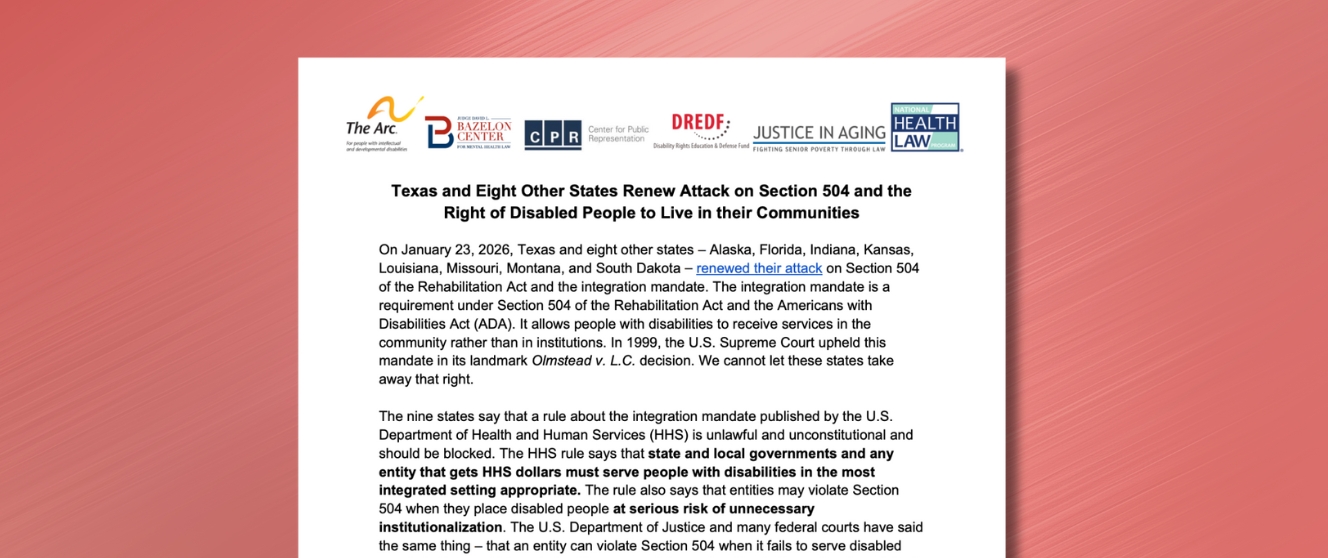

On January 24, 2019, DREDF, along with AARP, Justice in Aging, and the National Academy of Elder Law Attorneys, filed an amicus brief in the U.S. District Court for the District of Columbia supporting the National Health Law Program’s complaint against the Centers for Medicare and Medicaid Services (“CMS”) for reapproving Kentucky’s Section 1115 Medicaid Waiver Application. The case, Stewart v. Azar, challenges Kentucky’s latest attempt to impose restrictive work requirements, premium payments, and additional administrative burdens on many Medicaid beneficiaries in the State, as well as eliminate the non-medical transportation benefit. CMS’ approval of Kentucky’s first Section 1115 waiver application was struck down by the district court for failing to be in accordance with the fundamental purposes of the Medicaid Act.
Additionally, at the end of January, DREDF filed two amicus briefs in the U.S. Court of the Appeals for Ninth Circuit, in support of the Plaintiffs-Appellants discriminatory health benefit design claims. The cases, Schmitt v. Kaiser and E.S. v. Regence Blueshield, challenge the private health plans’ exclusions of hearing loss treatments (including hearing aids) as disability discrimination under Section 1557 of the Affordable Care Act (“ACA”). DREDF’s briefs focus on how the hearing loss exclusions violate longstanding principles of disability nondiscrimination law; undermine the purposes of the ACA; and inhibit people with hearing disabilities from accessing the services and devices that they need to equally access education, employment, and public services and effectively participate in their communities. Joining DREDF as amici was the National Association of the Deaf; the Bazelon Center for Mental Health Law; the Hearing Loss Association of America; the Hearing Loss Association, Oregon State Association; the Washington State Communication Access Project; the Oregon Communication Access Project; and the California Communication Access Project.
Download the briefs:
- Stewart v. Azar (PDF)
- Schmitt v. Kaiser (PDF)
- E.S. v. Regence Blueshield (PDF)

